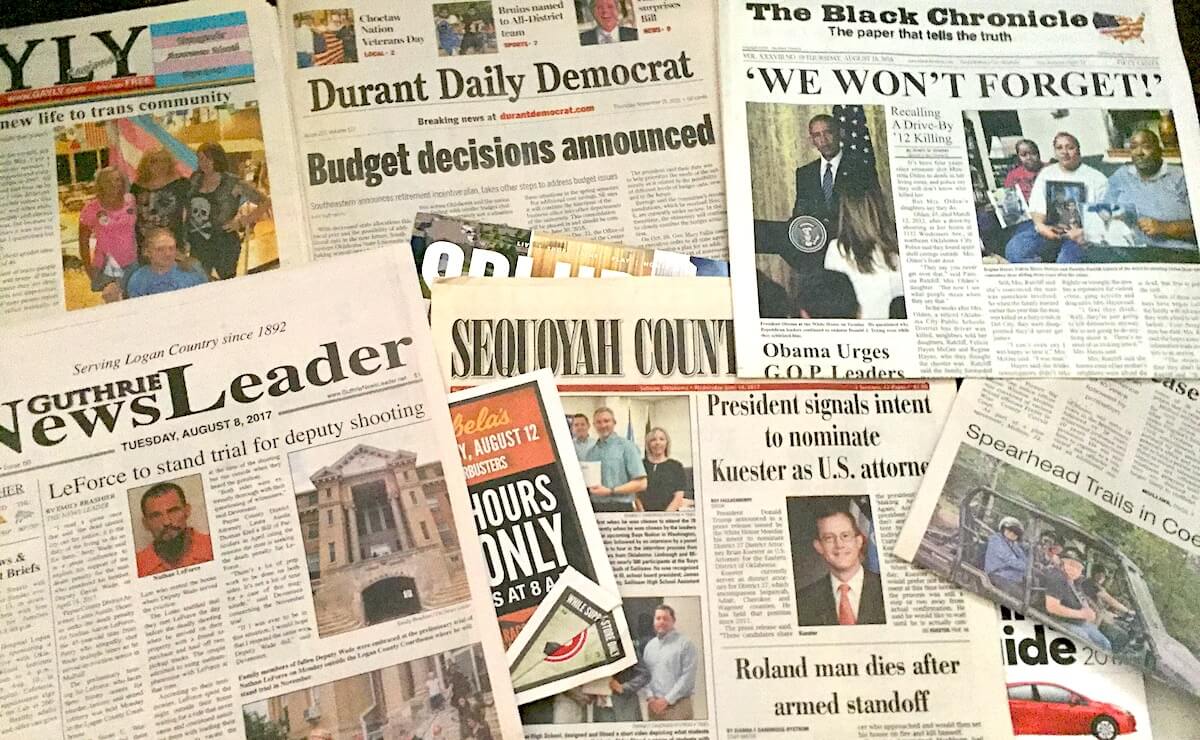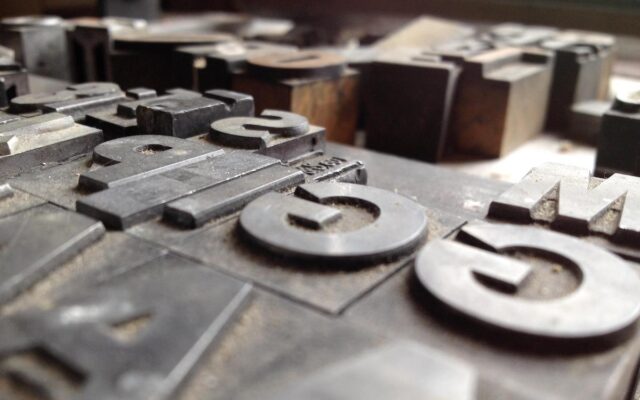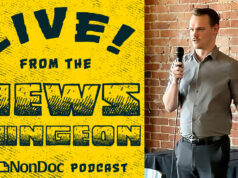
Your editor has asked me to write something about having been a journalist in days of yore when print was king and computers were only centerpieces in science fiction movies.
Well, once upon a time, I worked for a minor metropolitan daily newspaper, which (so I’m told) is now a major metropolitan daily. Based on the shrinking page counts and printing frequencies of local newspapers, I suspect it was a larger operation then than now.
Back then, we reporters were in the newsroom on the second floor with our various editors — city, managing, in-chief, and so forth. The photographers were across the hall. On the first floor, circulation handled subscribers, and receptionists dealt with any crackpots who came through the front door. The presses, typesetters and proofreaders were in the basement.
In the newsroom, every desk sported a Royal manual typewriter. Each had an enormous spool of paper hanging off of it, two continuous sheets separated by a sheet of carbon paper. It all fed into one’s typewriter, each story to be torn off when it was completed. Stories were different lengths — literally.
My editor inserted a subhead to keep you reading
Once the editors had improved everyone’s prose (hah!), the copy went down pneumatic tubes to the compositors and their Mergenthaler linotypes, then eventually to the presses.
All of this occurred before 11 p.m. The first of the three morning editions came out an hour later, and we all sat around a horseshoe-shaped table and read it, looking for what the elderly ladies in the proof room might have missed.
Some of the linotype operators were comedians. There was a governmental affairs reporter they didn’t like. His last name was “Morton.” Once every couple of weeks, it appeared as “Moron.”
Revered for their ability to read backwards, the typesetters also played around with words like “shirt” and “suit.” I shall never forget the night that the slot man — the editor who sat inside the horseshoe-shaped table — jumped up and hit the big red “Stop The Presses” button of cinematic legend.
“We’ve got ‘shits’ on page one!” he screamed.
The word had been “suits,” and the context involved what U.S. Attorney General Bobby Kennedy could file with the Supreme Court regarding desegregation.
A pressman with a hammer and chisel fixed the problem on the plate, and everything was reset before the next edition.
Good editors discuss important decisions thoroughly

Once a week, I occupied the obit desk, decorated with skulls and crossbones by the Salvation Army officer who usually held sway.
This was well before newspapers decided they could profit needed to survive by charging for obituaries. Funeral homes would phone in and dictate what they wanted to be published. As a courtesy, the paper printed a list of the deceased on the front page so readers would know what was what before they reached the obit section.
So I would sit there, phone tucked between shoulder and ear, pounding away on the Royal while some funeral director droned on about his latest customer. Then I would add the deceased’s name to the list for the next day’s front page.
Once, the regular obit writer forgot to add a name to the list, and I was the one who took the phone call from her dearest friend complaining about the woman’s absence from the front page.
She busted my chops for 10 minutes about what a poor job we were doing, and she ended her tirade with a question: “If her name isn’t on the front page, how will anybody know she’s dead?”
My response got me in lots of trouble with the higher-ups, including the publisher.
“Well, if nobody sees her on the streets for a couple of days, maybe they’ll get the idea.”
The editors called a meeting to discuss the implications of running a name on page one days after the obituary had appeared. Despite their thorough considerations, I don’t recall what they decided.
An occupational hazard: Overexposure to the human condition
A couple of days each week, I subbed for our police reporter, and I could tell many, many stories about that, mostly having to do with what nowadays would be civil rights violations. Our editors kept plenty out of the paper, but there was great examination of whether rock ‘n roll was leading teenagers to juvenile delinquency.
Still, I enjoyed my brief career as a newspaperman. Every day I went to work, I never knew what I was going to encounter. — what might happen next or what had happened while we were asleep. That’s why we got in our cars and drove around to various places to find out what was going on.
Once, at an emergency room, I saw a surgeon operate on a man with a spinal injury. He was drilling two holes in the top of the man’s skull so they could install a clamp to keep his neck from rolling side to side. The hospital was short-handed, so I ended up sitting by the guy’s head and sopping up blood while the bone drill was whirring. I never thought that would happen to me.
All my time at the hospital, police station, sheriff’s office, penitentiary, highway patrol headquarters — and the discovery that many of my newsroom colleagues were either alcoholics or well on their way to achieving that status — added up to overexposure to the human condition.
So I abandoned journalism to pursue a career teaching history. I had majored in journalism because I wanted to learn to write. I learned to handle infinitives and participles, and I learned to spell. Thus, I entered the field of history knowing that I was “a” historian. (As the late Savoie Lottinville was wont to say, “An historian is an hell of a thing.”)
Looking back, I have no regrets about my brief time in the journalism world, and I find great sadness watching the decline of the newspaper. In my mind, a newspaper used to bring communities together in a way that I fear we have lost forever.
As a reporter, I met a number of fascinating individuals, almost as many as I met in 40 classroom years. The newsroom served its purpose, one way or another.
And by the way, your editor is a considerably better journalist than I could ever have hoped to be. (Should he remove the foregoing sentence, I think I should disown him.)





















